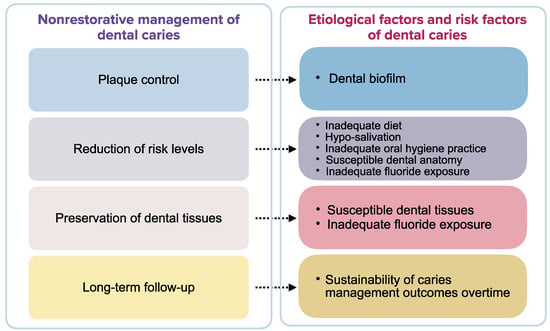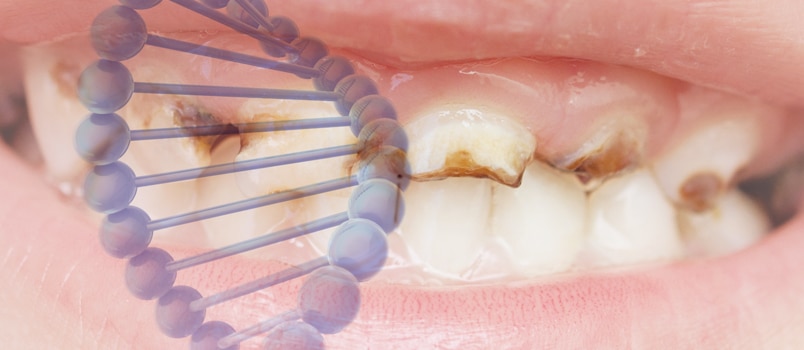What Is The Role Of The Dental Hygienist In Caries Reduction?
Dental hygienists play an important role in the prevention and reduction of dental caries (tooth decay). They are trained to use preventive measures and treatments to help reduce the risk of developing caries. They can also detect early signs of caries and provide appropriate interventions. Dental hygienists can provide patient education on proper oral hygiene techniques such as brushing, flossing, and using a fluoride-containing toothpaste. They may also recommend sealants and other preventive measures to reduce caries risk. Additionally, dental hygienists can monitor the progress of caries prevention through regular oral examinations and implement appropriate treatments as needed. Thus, dental hygienists play an important role in the reduction of dental caries.
Dental Hygiene and Caries Prevention
The role of the dental hygienist is essential in preventing and reducing the occurrence of caries. Dental hygienists are trained professionals who specialize in providing preventive care and education to help patients maintain oral health. They are responsible for cleaning and polishing teeth, removing plaque, and providing fluoride treatments. Dental hygienists also provide basic education to patients about the importance of good oral hygiene and the risks of not practicing it.
Good oral hygiene is essential for reducing the occurrence of caries. By removing plaque and tartar, dental hygienists can help prevent caries from developing. They also provide fluoride treatments to strengthen enamel and protect teeth from decay. Dental hygienists can also offer advice on proper brushing and flossing techniques to prevent the build-up of bacteria and plaque.
The role of the dental hygienist in caries reduction is invaluable. Through regular cleanings, preventive care, and patient education, dental hygienists can help reduce the occurrence of caries and protect the overall health of teeth. By providing preventive care and education, dental hygienists can help ensure that patients maintain good oral hygiene and decrease their risk of developing caries.
Benefits of Dental Hygiene in Caries Reduction
Dental hygiene plays an essential role in caries prevention and reduction. From regular checkups and cleanings to sealants and fluoride treatments, preventive dental hygiene care can help reduce the risk of cavities and other dental problems. Furthermore, dental hygienists are trained to identify and address potential caries risk factors, such as poor oral hygiene, poor nutrition, and smoking.
Regular visits to the dental hygienist for check-ups and professional cleanings are important for maintaining good oral health and preventing the development of cavities and other dental problems. During a professional cleaning, the hygienist removes plaque and tartar buildup from the teeth, and can also apply sealants and fluoride treatments. Sealants are thin plastic coatings that are applied to the chewing surfaces of the teeth to help protect them from acid attack and cavities. Fluoride treatments help strengthen the enamel and make it more resistant to decay.
Dental hygienists are also trained to screen for potential caries risk factors and provide guidance on lifestyle modifications that can help reduce the risk of cavities. For example, they can provide tips on proper oral hygiene practices, such as brushing and flossing, and recommend dietary changes that can reduce the risk of tooth decay. They can also provide tobacco cessation advice to help reduce the risk of tooth decay and other oral health problems.
In conclusion, dental hygiene plays a key role in caries reduction. Regular checkups and cleanings, sealants, and fluoride treatments can help protect the teeth from decay and cavities. Additionally, dental hygienists can identify potential caries risk factors and provide guidance on lifestyle modifications that can help reduce the risk of cavities.
The Role of the Dental Hygienist
in Caries Reduction
The role of the dental hygienist is pivotal in reducing and preventing caries. By providing professional preventive services, such as scaling, polishing, and fluoride treatments, dental hygienists can help to reduce the incidence of caries in patients. Hygienists also play an important role in educating patients about the importance of proper oral hygiene, such as brushing and flossing, and dietary habits, such as limiting sugary foods and drinks, to reduce caries. Hygienists can also provide insight into the use of fluoride products to strengthen teeth and protect them from caries.
In addition to providing preventive and educational services, dental hygienists are also responsible for identifying caries in patients and reporting the findings to dentists. Through early detection of caries, dental hygienists can help reduce the amount of dental treatment needed for patients. They can also provide specific recommendations on how to reduce caries and improve oral health.
Dental hygienists play an important role in reducing caries and improving patient’s oral health. By providing preventive services, educating patients, and identifying caries, dental hygienists can help to reduce the incidence of caries in patients and improve overall patient outcomes.

Effective Strategies for Caries Reduction
The role of the dental hygienist is critical for caries prevention and management. Not only does the hygienist provide essential preventive services such as dental cleanings, fluoride treatments, and patient education, they can also play an active role in caries reduction. By understanding the various strategies available to reduce caries, dental hygienists can provide their patients with the best possible care.
Caries can be reduced through a combination of effective strategies such as reducing the amount of sugar in the diet, increasing the frequency of brushing and flossing, using fluoride products, and using sealants to protect vulnerable areas. Dental hygienists can provide important guidance and support to their patients when it comes to implementing these strategies.
The dental hygienist should also be knowledgeable about the signs and symptoms of caries. Early detection of caries is key for effective management, and the hygienist should be able to recognize the condition and advise the patient on what steps to take in order to prevent further damage.
The dental hygienist is an important part of the caries prevention and management team. By understanding the various strategies available and providing clients with the necessary guidance, the hygienist can help to reduce the prevalence of caries in their patients’ mouths.
The Impact of Dental Hygiene on Caries Reduction
Dental hygiene is not only important for maintaining the overall health of your mouth, but also for the prevention of dental caries. A dental hygienist plays an important role in caries reduction and prevention, as they help to ensure the patient is getting the right oral care and treatment. They are instrumental in helping to reduce the incidence of caries by performing preventive services such as teeth cleaning, polishing, and fluoride treatments. Additionally, they are knowledgeable in the detection and diagnosis of caries, and can provide advice on how to reduce the risk of caries progression. Through education, monitoring, and preventive treatments, dental hygienists are able to help reduce the risk of caries and maintain a healthy oral environment.
The Future of Dental Hygiene in Caries Reduction
Dental hygienists are an integral part of the dental team and play a critical role in caries reduction. From applying sealants to educating patients about the importance of oral hygiene, dental hygienists are essential for preventing and reducing caries. As technology advances, the role of the dental hygienist in caries reduction is becoming increasingly important.
The use of digital radiography, lasers, and other advanced technologies enable dental hygienists to provide more accurate and thorough treatments. These technologies provide dental hygienists with the ability to identify and diagnose caries earlier than ever before. Digital radiography and other advanced technologies can also be used to monitor caries progression and develop treatment plans that are tailored to the individual patient’s needs.
With the implementation of evidence-based practices, dental hygienists have the opportunity to provide preventive and therapeutic care that is more efficient and effective in reducing caries. Dental hygienists can educate patients on the importance of proper oral hygiene practices, such as brushing and flossing, and provide personalized advice on how to maintain healthy teeth and gums.
The future of dental hygiene in caries reduction is bright. With the use of technology, evidence-based practices, and patient education, dental hygienists can help reduce caries and improve overall oral health. Dental hygienists are essential for providing preventive and therapeutic care that helps ensure a lifetime of healthy and beautiful smiles.
FAQs About the What Is The Role Of The Dental Hygienist In Caries Reduction?
1. What qualifications must a dental hygienist have in order to be able to help reduce caries?
A dental hygienist must have a minimum of an associate’s degree in dental hygiene from an accredited college and must be licensed by the state they are practicing in.
2. What duties does a dental hygienist typically perform in order to reduce caries?
A dental hygienist typically performs a range of preventive and therapeutic services, including scaling and root planning, sealants, fluoride, and other treatments to reduce caries.
3. How often should a patient visit the dental hygienist to reduce caries?
A patient should visit a dental hygienist for a professional cleaning and exam every 6 months in order to properly reduce caries.
Conclusion
The role of the dental hygienist in caries reduction is invaluable. By providing preventative care such as regular examinations, professional dental cleanings, and patient education on oral hygiene, the dental hygienist can effectively reduce the risk of caries. In addition, the dental hygienist can apply preventive treatments such as fluoride and sealants to help reduce caries. With proper care and preventive measures, the dental hygienist is instrumental in protecting oral health and reducing the risk of caries.






